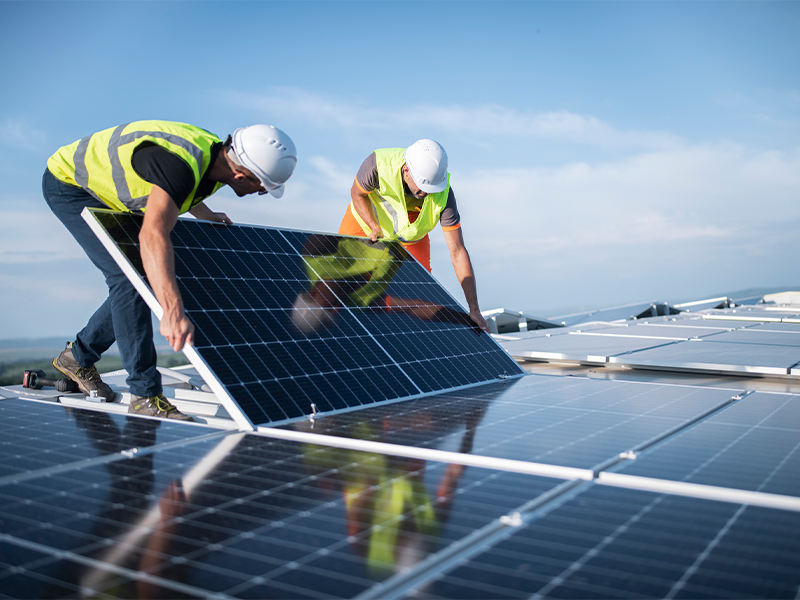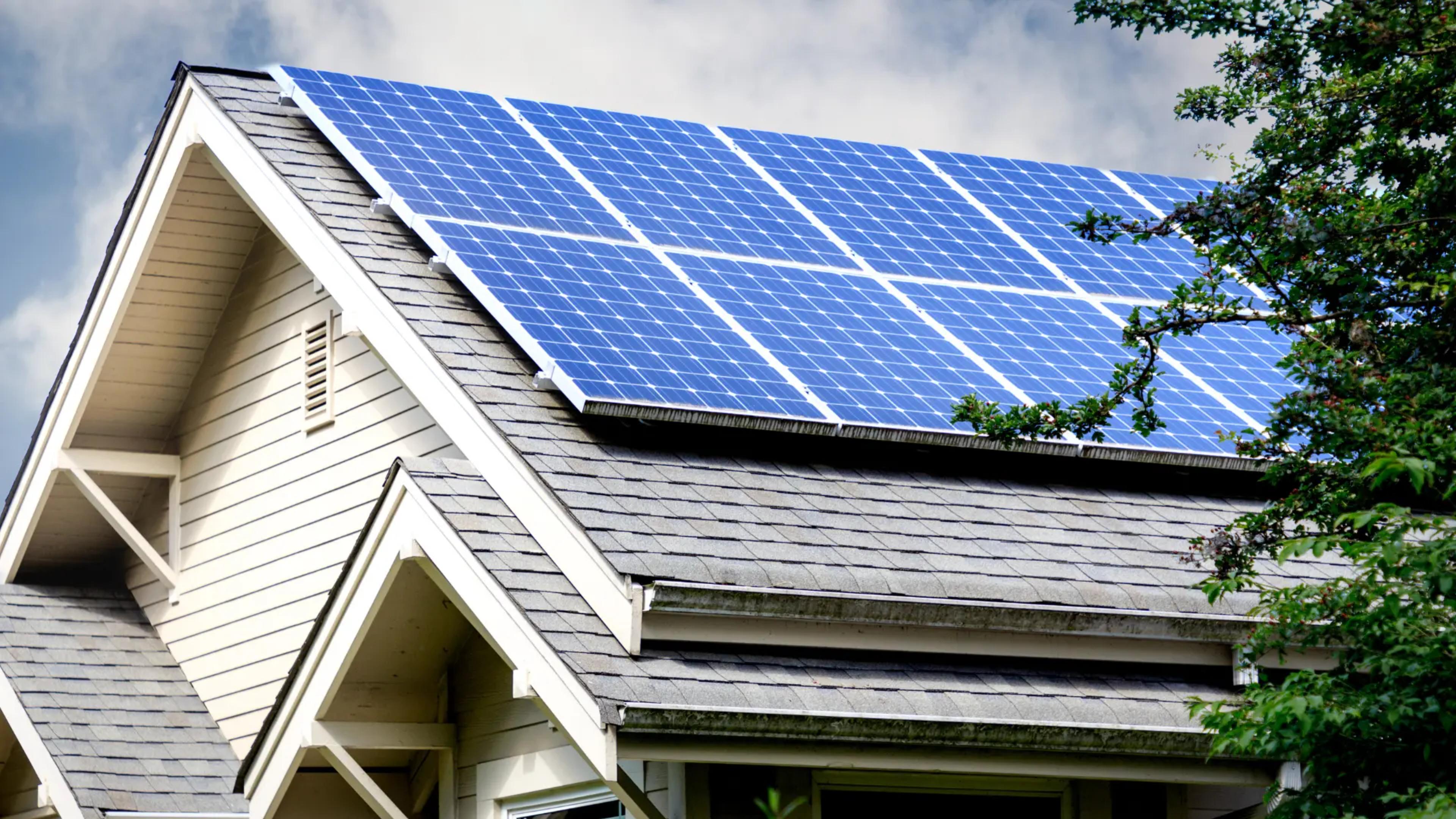Why Choose Simply Solar Illinois for Eco-Friendly Energy Solutions?
Just How Solar Power Can Aid You Save Cash and Reduce Your Carbon Impact
The assimilation of solar power into your energy profile offers an engaging opportunity for both financial savings and ecological stewardship. As numerous government rewards become offered, the inquiry develops: how can one successfully navigate the first financial investments and ongoing advantages of solar technology to make best use of both economic and ecological gains?
Recognizing Solar Power Savings
While the transition to solar power frequently includes a first financial investment, comprehending solar energy cost savings is essential for homeowners and organizations alike. Solar energy systems can substantially minimize power bills by taking advantage of the sun's power, equating right into considerable lasting economic advantages. By producing their own electricity, users decrease reliance on grid power, which goes through fluctuating rates. These cost savings can collect in time, typically causing a quick roi.
Moreover, solar power systems might receive various monetary motivations, including tax credit scores and discounts, further boosting their cost-effectiveness. The availability of web metering allows individuals to offer excess power back to the grid, producing an additional revenue stream. These variables add to the total financial savings related to solar power.

In addition to direct monetary cost savings, solar energy uses the added benefit of raising property worth. Residences furnished with solar panels are frequently a lot more eye-catching to purchasers, as they promise reduced energy expenses - Simply Solar Illinois. Comprehending these components is vital for any individual considering solar energy, as it highlights not just the prospective economic gains, but also the wider ecological and economic advantages of taking on eco-friendly power remedies
Initial Costs vs. Long-Term Advantages
When examining solar power, it is essential to consider the preliminary costs against the lasting benefits. The ahead of time investment for solar panels, installation, and relevant equipment can be significant, typically varying from $15,000 to $30,000, relying on the system dimension and home power requirements. This preliminary expense might hinder some home owners; however, it is critical to consider the potential savings over time.
When set up, solar power systems can considerably lower or perhaps get rid of regular monthly electricity bills, bring about considerable lasting monetary advantages. Research studies indicate that home owners can save anywhere from $10,000 to $30,000 over the life expectancy of their solar system, usually 25 years. Furthermore, several states provide incentives, tax obligation credit histories, and discounts that can balance out preliminary costs, making solar a lot more obtainable.

Minimizing Your Carbon Impact
Minimizing your carbon footprint is a critical factor to consider in today's ecologically read what he said aware culture, and adopting solar energy is among one of the most reliable approaches to attain this objective. Solar power is a tidy, eco-friendly source that dramatically lessens reliance on fossil gas, which are major factors to greenhouse gas emissions.

Furthermore, the extensive fostering of solar modern technology motivates the development of environment-friendly tasks and supports advancements in power storage and performance. The even more people and organizations spend in solar energy, the greater the cumulative reduction in carbon discharges, promoting a cleaner ambience for future generations.
Federal Government Motivations and Refunds
Embracing solar power not just profits the environment yet can likewise bring about considerable economic cost savings, specifically with the availability of federal government rewards and rebates. Numerous federal, state, and local programs are made to encourage property owners and companies to purchase solar power systems, making the transition a lot more budget friendly.
Among one of the most prominent incentives is the Federal Investment Tax Credit Score (ITC), which enables planetary system owners to subtract a substantial percentage of the installation prices from their federal tax obligations. This incentive has actually been crucial in minimizing the in advance expenditures linked with solar power systems. In addition, lots of states offer their own tax obligation credit scores, gives, and rebates that can additionally improve cost savings.
Additionally, some city governments offer real estate tax exceptions for solar installments, guaranteeing that home owners do not encounter increased real estate tax as a result of their renewable power investments. Utility business may additionally provide incentives, including internet metering and feed-in tariffs, which permit solar power customers to sell excess power back to you can try this out the grid.
Choosing the Right Planetary System
Picking the appropriate planetary system is vital for making the most of power effectiveness and economic benefits. The decision rests on several variables, consisting of power needs, budget, and readily available space. Homeowners should start by assessing their electrical energy intake to determine the system size required for optimal efficiency.
Following, consider the various kinds of solar modern technologies offered. Simply Solar Illinois. Photovoltaic Or Pv (PV) panels are the most typical, converting sunlight directly into electrical power, while solar thermal systems concentrate on heating water. Each type has try this unique benefits depending upon individual needs
Budget considerations are likewise vital. First installation costs can differ significantly, so it is necessary to contrast quotes from numerous companies and discover financing options. Federal government rewards and discounts can even more reduce the monetary burden, making planetary systems more available.
Final Thought
In summary, solar energy provides a feasible remedy for achieving considerable price financial savings while simultaneously decreasing carbon discharges. The preliminary financial investment, though substantial, returns significant long-lasting financial benefits, with potential cost savings varying from $10,000 to $30,000 over 25 years. Furthermore, the environmental advantages of solar power add to sustainable practices important for combating environment change. Government rewards improve the expediency of solar technology adoption, motivating a shift towards a cleaner, more financially reliable power source.